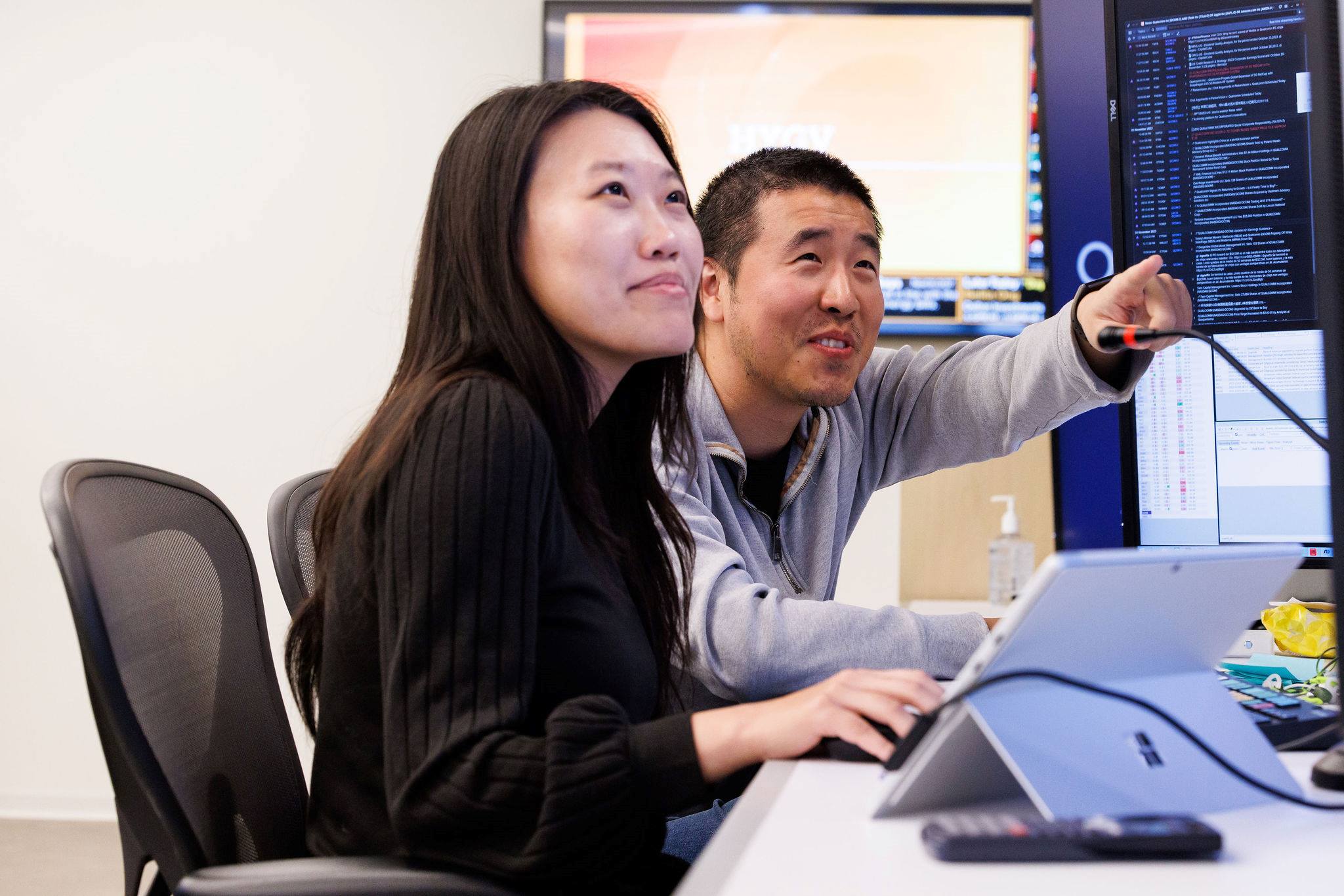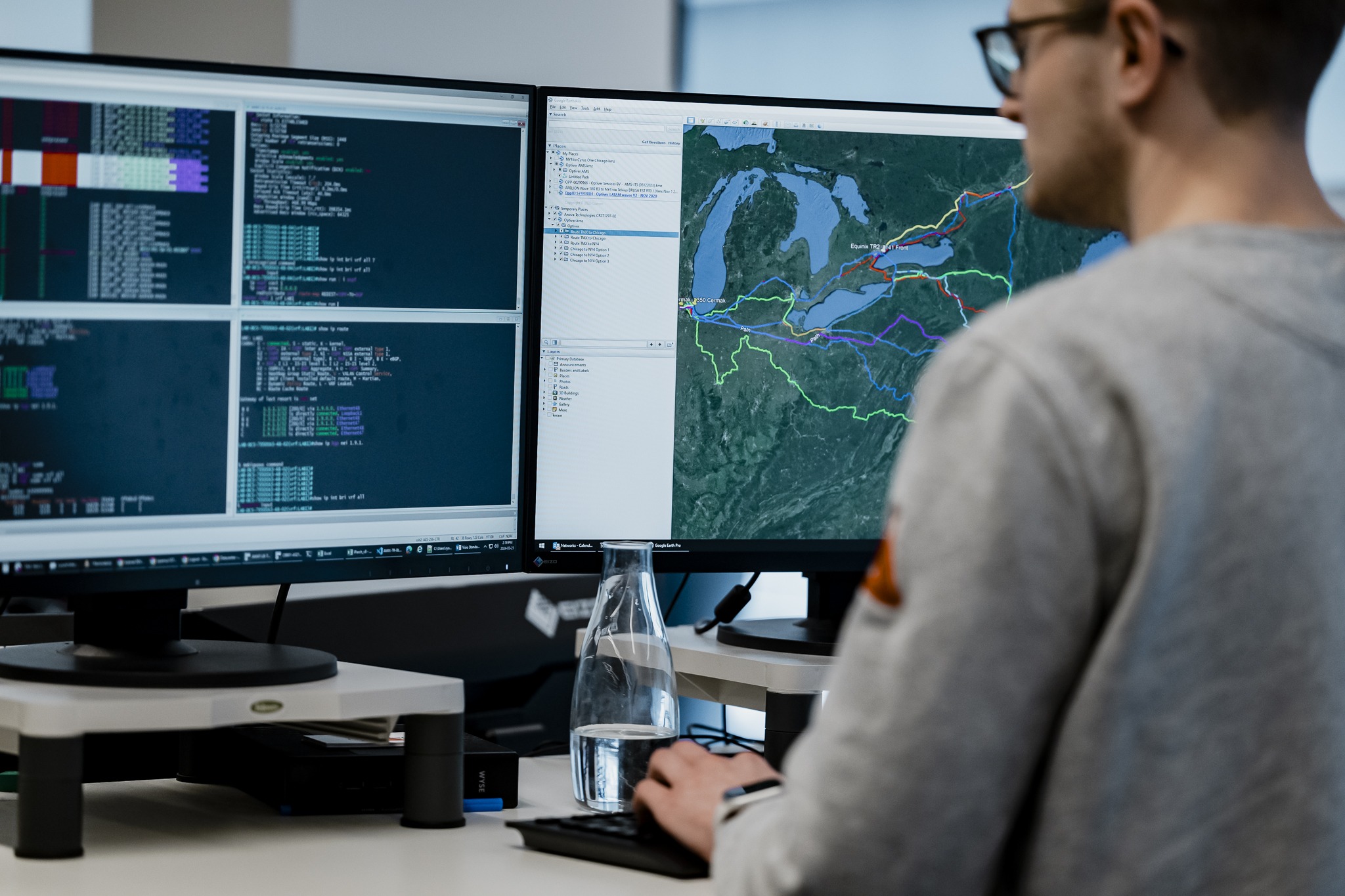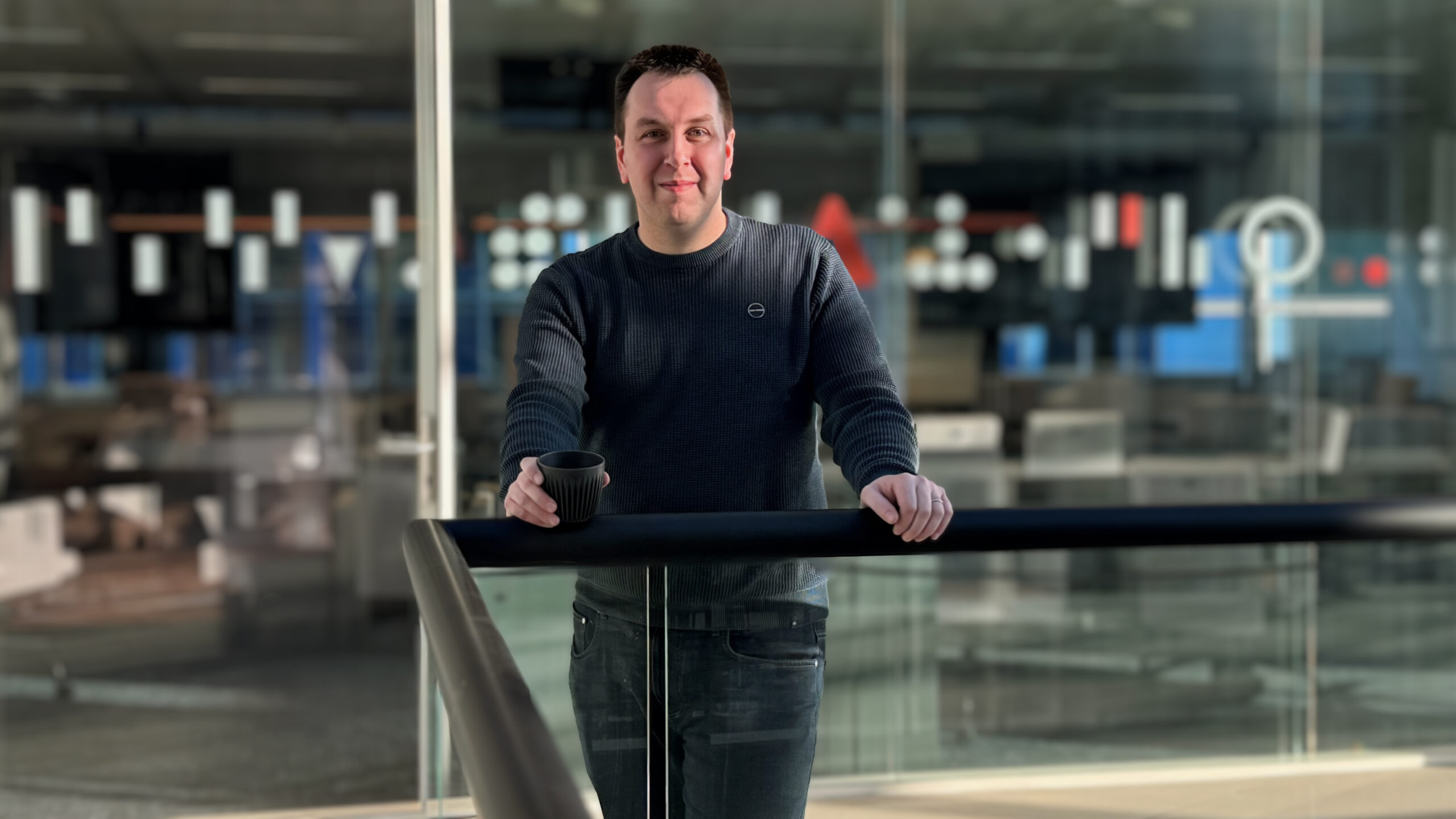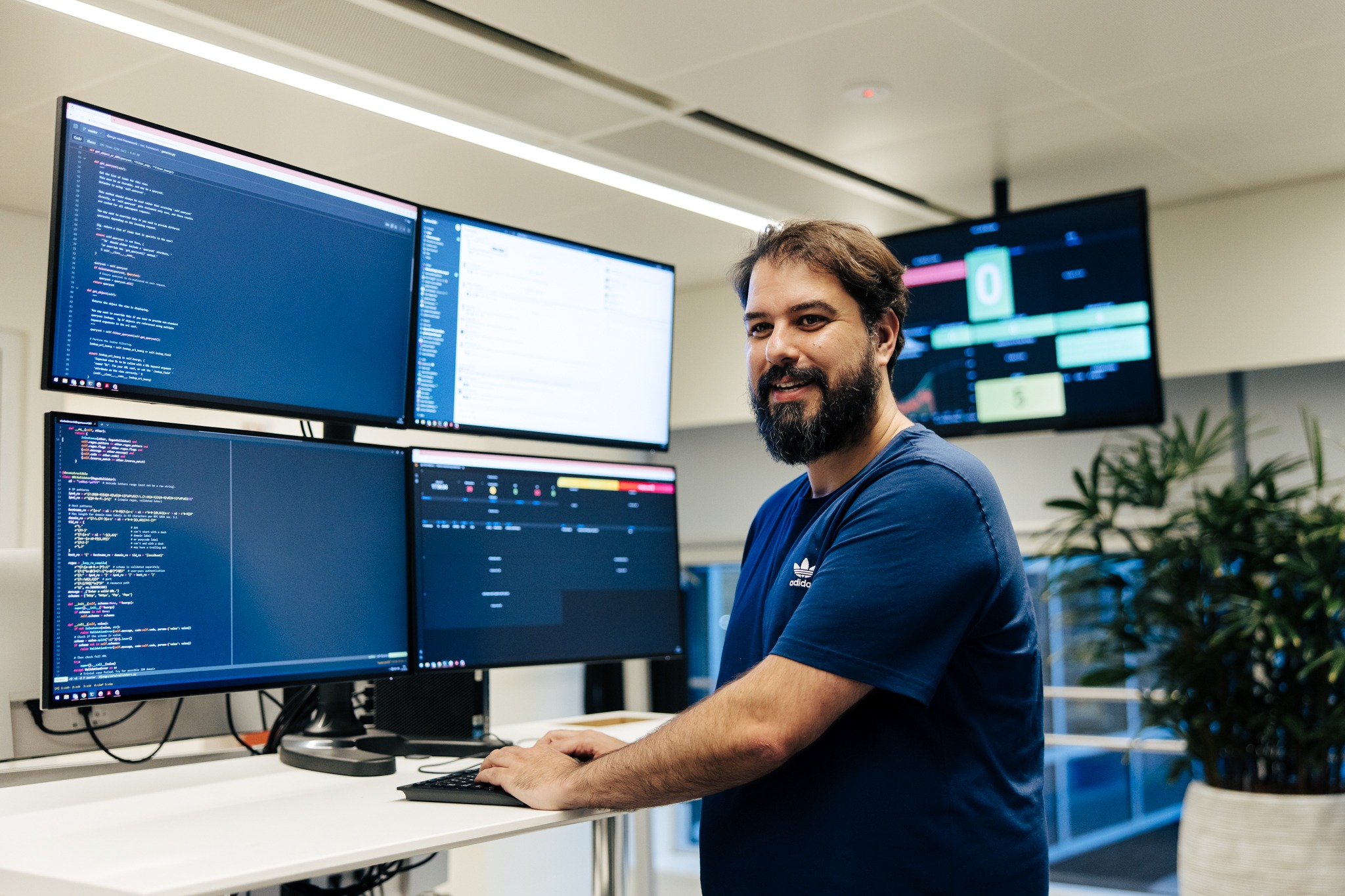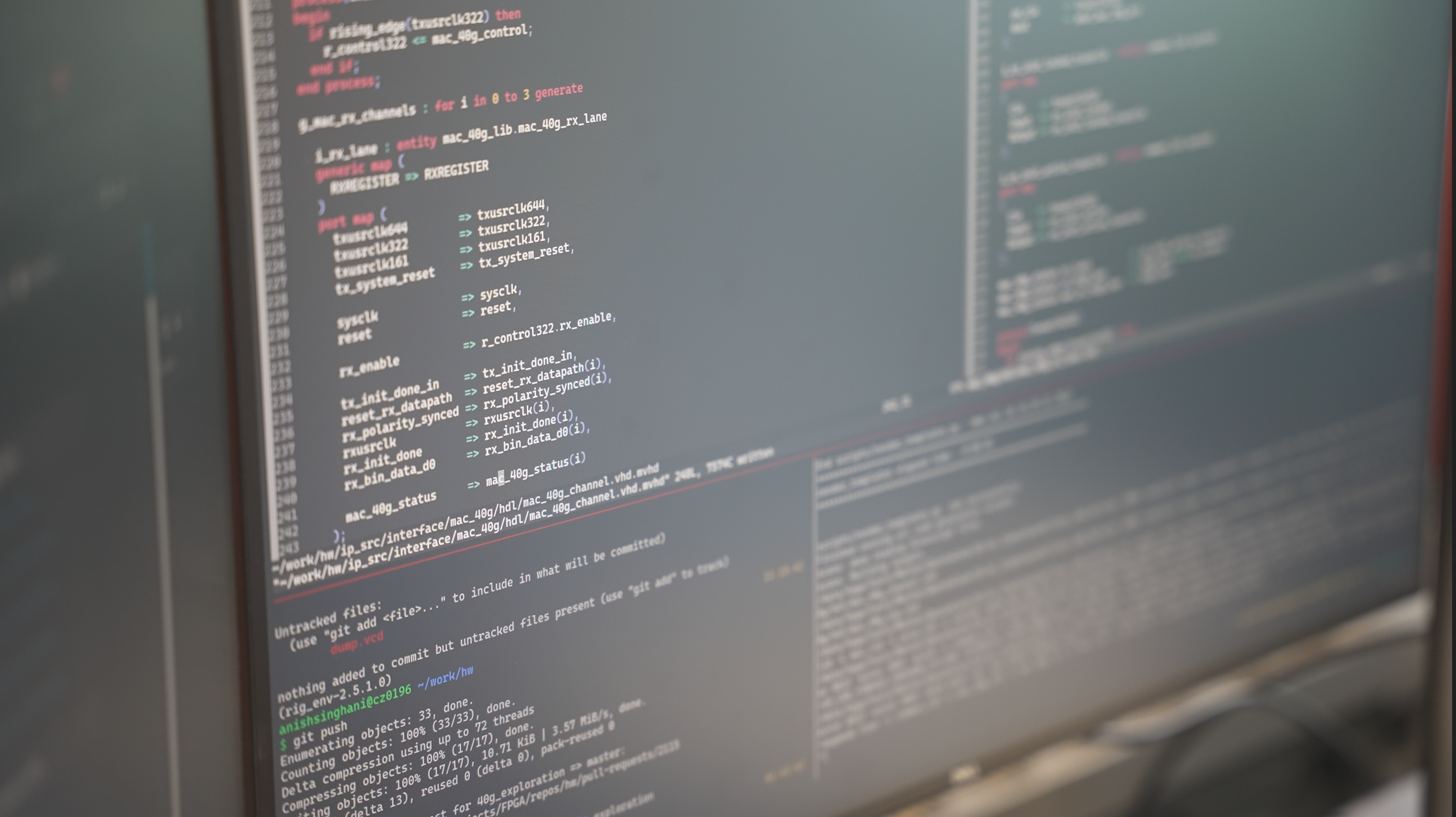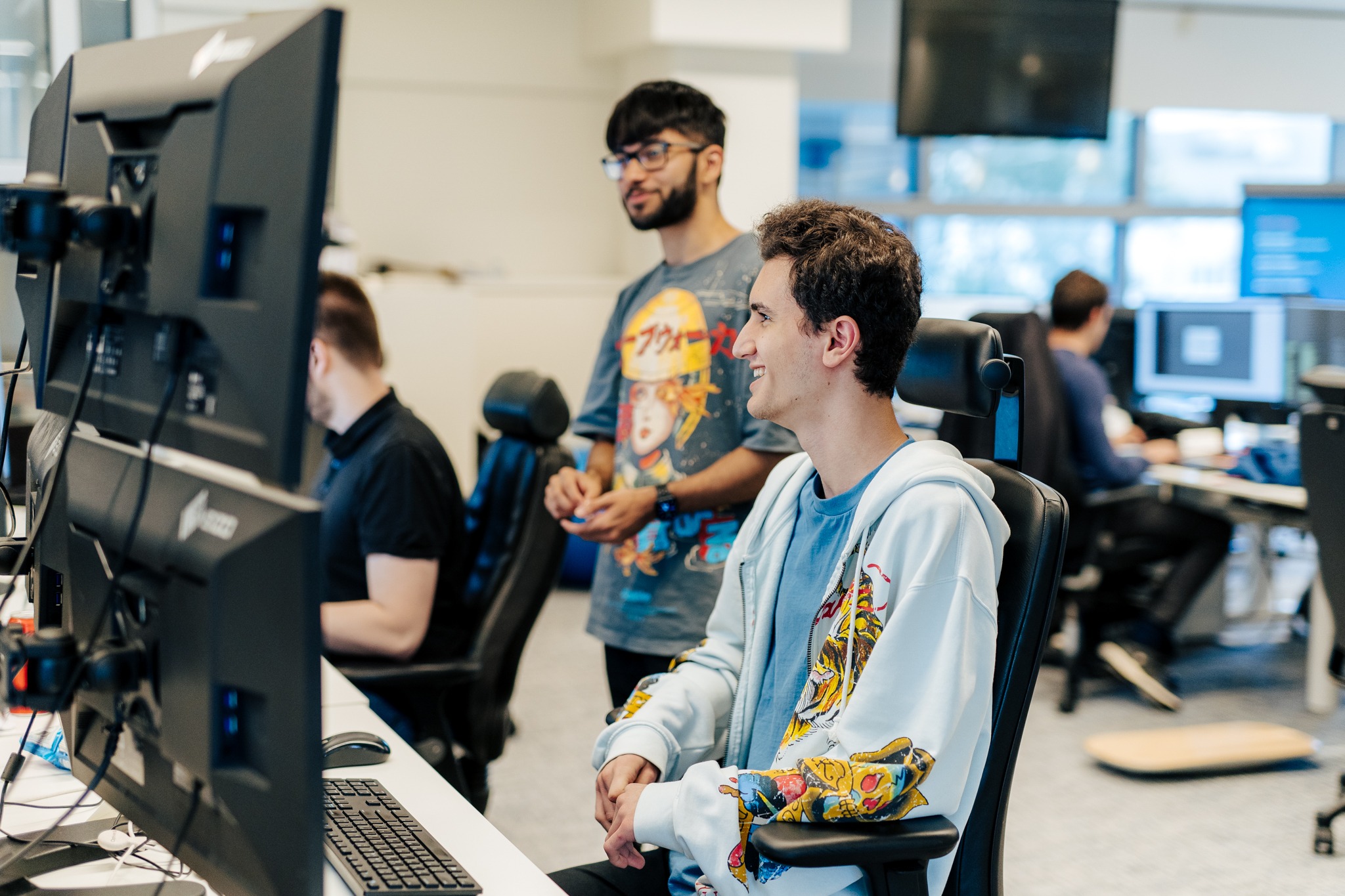From Engineer to Trader: Yes, it can be done
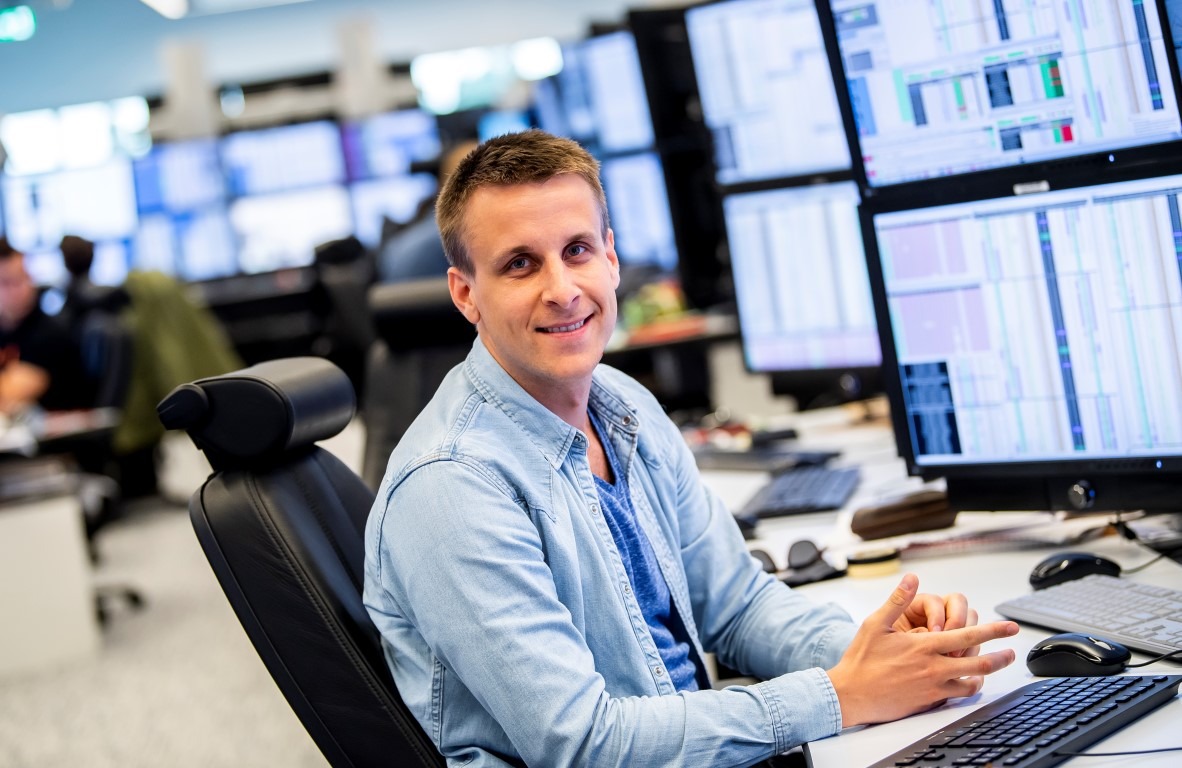
If you thought you didn’t have the right academic background to make it as a trader, think again. In the digital age, finance is becoming increasingly technology- and data-driven. As the roles of traders, engineers and researchers converge, the trading floor is drawing in ambitious graduates from a wide range of subjects. But don’t take our word for it:
computer science graduate Łukasz Harężlak is living proof that – at Optiver at least – traders come from all walks of life.
We sat down with Łukasz to explore his journey from tech student to Optiver trader. He talks about his passion for his work and how his academic background helps him thrive in the cut and thrust of the markets.
What led you to become a trader at Optiver?
It all started back at school in Poland. I was an instinctive problem-solver and I gravitated to technical subjects like science and maths. Working through puzzles and challenges just came naturally to me.

The next stop was a computer science degree, and then a Master’s in Software Engineering at the University of Amsterdam. I’m quite entrepreneurial, so after graduating, I rolled the dice and co-founded a tech start-up.

My business partner was an ex-trader. The more he told me about trading, the more it fascinated me. He knew I loved living in Amsterdam, and he recommended I apply to Optiver – a firm with a diverse, international culture that could offer a world-class education in the financial markets.
I began my Optiver career as a software engineer. I started working closely with the trading team and began to learn more about the work they were doing. Suddenly, I had a new goal – I moved over to the firm’s trader graduate programme not long after that.
Was it difficult to make the switch?
Not at all. As a software engineer, I’d completed the ‘trading for non-traders’ traineeship, so I already had a solid grounding in the financial markets and the work Optiver does. I also had the encouragement of HR and the technology and trading teams. My background was never an issue: the culture here is all about self-improvement, and I was given the support I needed to quickly acclimatise to the markets.

How does being a trader differ from software engineering?
Both roles are intellectually challenging, but trading means working in a more instinctive, fast-paced way.
From the minute the markets open, we’re making split-second decisions to stay ahead of other market participants. I’m using similar skills to my previous role, but in a more intense and time-pressured environment, which I love.
I also enjoy the variety of tackling new challenges and demands. The world of trading is constantly evolving – you keep up by innovating, and there’s never a long-term solution that guarantees you a ‘win’.
Since switching to trading, I’ve taken on new responsibilities, like running my own trading book. The role is less structured; it’s up to me to manage my time and priorities. I guess you could say it’s more entrepreneurial in that sense.
How does an engineering background support you in your trading career?
My big advantage over non-engineering grads is knowing the technology and what it can do. It makes a difference when developing new solutions and getting the most out of our trading infrastructure – like with on-the-fly data churning.
I can also communicate well with the tech teams here at Optiver. We speak the same language – and that helps us get to our goal faster.
What do the roles of trader and software engineer have in common?
Trading is becoming more and more automated and data-driven. This creates overlap with software engineering, as well as research.
As traders, we’re always looking for ways to automate different aspects of our work, so we can focus on higher-level tasks. The better you understand how this can be done, the more value you add.
How has Optiver helped you grow your career?
Optiver puts you on the trading floor after your first two months of training. No one else offers that kind of responsibility so early on – that’s a huge career advantage right away.
Since then, I’ve been working on my personal development through technical courses and other training opportunities. There’s nothing more fulfilling than learning new skills and putting them to use in your work.

What qualities do you need to be an Optiver trader?
There’s one thing you need in abundance here: perseverance. Traders make hundreds of split-second decisions every day, many of which will be wrong. You need a thick skin to deal with the setbacks. I just take a minute to reflect on my decision before moving on to the next trade.
People skills are also crucial. I love the competitive side of my job, but you can’t be a good trader at Optiver if you’re not a team player. On the trading floor, information is thrown at us from every angle. You need to communicate clearly and leverage each other’s strengths to get the results you want.
As you can see, Łukasz’s route to the trading floor wasn’t what you might expect. If he can make the jump, you can too – take the next step today by visiting our career section.
